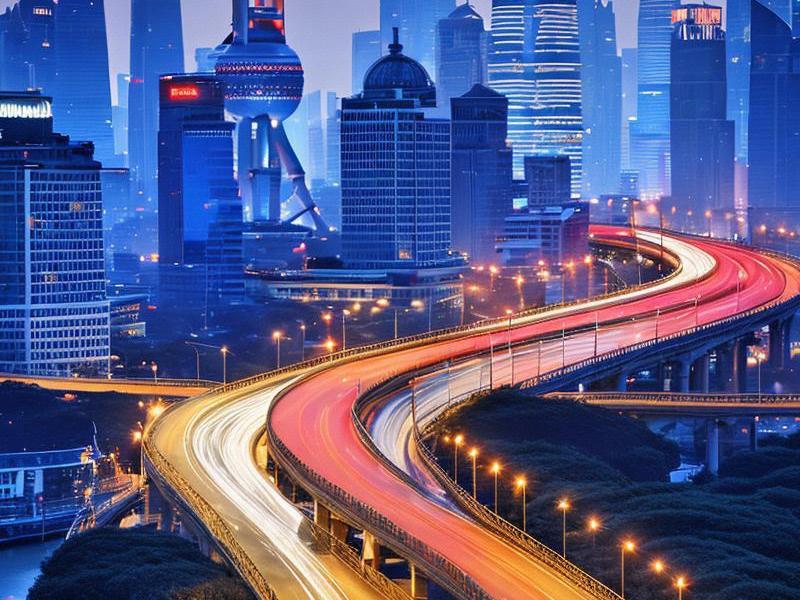This article delves into the multifaceted character of Shanghai, exploring its rapid urban development, its role as a crucial economic hub, the fusion of diverse cultures, and its increasing global influence. Shanghai, a city that has witnessed the ebb and flow of history, stands today as a beacon of China's modernization and a significant player on the world stage.

Shanghai, often referred to as the "Pearl of the Orient," is a city that has undergone a remarkable transformation over the past few decades. Once a small fishing village, it has grown into one of the world's most dynamic metropolises, renowned for its skyline, bustling streets, and rich cultural heritage.
The urban development of Shanghai is nothing short of spectacular. The city's skyline, dominated by the iconic Oriental Pearl Tower and the futuristic Shanghai Tower, is a testament to its rapid modernization. These architectural marvels, along with the Jin Mao Tower and the Shanghai World Financial Center, form a striking silhouette against the backdorpof the Huangpu River, symbolizing the city's economic prowess and ambition.
Shanghai's economic hub status is deeply entrenched in its DNA. As one of China's four municipalities directly under the central government, it enjoys a unique position that allows it to implement policies and attract investments with ease. The city is home to the bustling Pudong district, which houses the Lujiazui Financial District, a global financial center comparable to Wall Street and the City of London.
The Pudong area has seen exponential growth since its development began in the late 1990s. It is now a hub for multinational corporations, financial institutions, and high-tech industries. The presence of the Shanghai Stock Exchange, one of the largest in Asia, further cements its status as a financial powerhouse. Moreover, the free trade zone established in Pudong has facilitated international trade and investment, making Shanghai a gateway to the Chinese market.
Culturally, Shanghai is a melting pot of influences. It has historically been a meeting point for Chinese and Western cultures, resulting in a unique blend that is reflected in its architecture, cuisine, and lifestyle. The Bund, with its colonial-era buildings, stands in stark contrast to the futuristic skyline of Pudong, symbolizing this cultural fusion.
夜上海最新论坛
Shanghai's culinary scene is a testament to its diverse heritage. From traditional Shanghainese dishes like xiaolongbao (soup dumplings) and shengjianbao (pan-fried buns) to international cuisines, the city offers a gastronomic adventure for every palate. The vibrant night markets and bustling food streets are a testament to the city's culinary vibrancy.
The lifestyle in Shanghai is a blend of the old and the new. The city's residents enjoy a high standard of living, with access to world-class healthcare, education, and entertainment facilities. The presence of international schools, luxury shopping malls, and cultural institutions further enhances the quality of life.
Shanghai's global influence is increasingly evident in various fields. It has been a host to numerous international events, including the World Expo in 2010, which attracted millions of visitors from around the world. The Expo showcased Shanghai's ability to organize large-scale events and its commitment to sustainable development.
The city's efforts in sustainability and green initiatives are also noteworthy. Shanghai has been investing in renewable energy, public transportation, and urban greening projects to reduce its carbon footprint. The Maglev train, the world's fastest commercial high-speed train, connects Shanghai to nearby cities, reducing travel time and promoting regional integration.
上海龙凤419官网
Shanghai's cultural scene is thriving, with a plethora of museums, theaters, and art galleries. The Shanghai Museum, renowned for its collection of ancient Chinese art, attracts millions of visitors annually. The city's theaters host a wide range of performances, from traditional Chinese opera to contemporary plays and concerts.
The influence of Shanghai extends beyond its borders. It plays a pivotal role in China's Belt and Road Initiative, facilitating trade and investment between China and countries across Asia, Europe, and Africa. The city's ports are among the busiest in the world, handling a significant portion of China's maritime trade.
Shanghai's educational institutions are also making waves on the global stage. Universities like Fudan University and Tongji University are renowned for their academic excellence and research contributions. The city's emphasis on innovation and entrepreneurship has fostered a vibrant startup ecosystem, attracting talent and investment from around the world.
The city's leadership in technology and innovation is evident in its smart city initiatives. Shanghai is leveraging technology to improve urban management, enhance public services, and promote sustainable development. The city's digital economy is growing rapidly, with advancements in artificial intelligence, big data, and the Internet of Things.
爱上海419论坛
Shanghai's role as a cultural and creative hub is also gaining momentum. The city is home to numerous art galleries, design studios, and cultural festivals that celebrate its rich heritage and foster creativity. The Shanghai International Film Festival is one of the most prestigious film festivals in Asia, attracting filmmakers and audiences from around the world.
The city's commitment to environmental sustainability is reflected in its urban planning and green initiatives. Shanghai has been investing in renewable energy, public transportation, and urban greening projects to reduce its carbon footprint. The Maglev train, the world's fastest commercial high-speed train, connects Shanghai to nearby cities, reducing travel time and promoting regional integration.
Shanghai's future looks promising as it continues to evolve into a global city. The city's leadership is focused on maintaining its economic competitiveness, enhancing its quality of life, and addressing the challenges of urbanization. Shanghai's vision for the future includes becoming a global center for innovation, culture, and sustainability.
In conclusion, Shanghai is a city that embodies the spirit of China's modernization and its aspirations for the future. Its rapid urban development, economic hub status, cultural fusion, and global influence make it a unique and dynamic metropolis. As Shanghai continues to grow and evolve, it remains a symbol of China's progress and a beacon of hope for a better future.